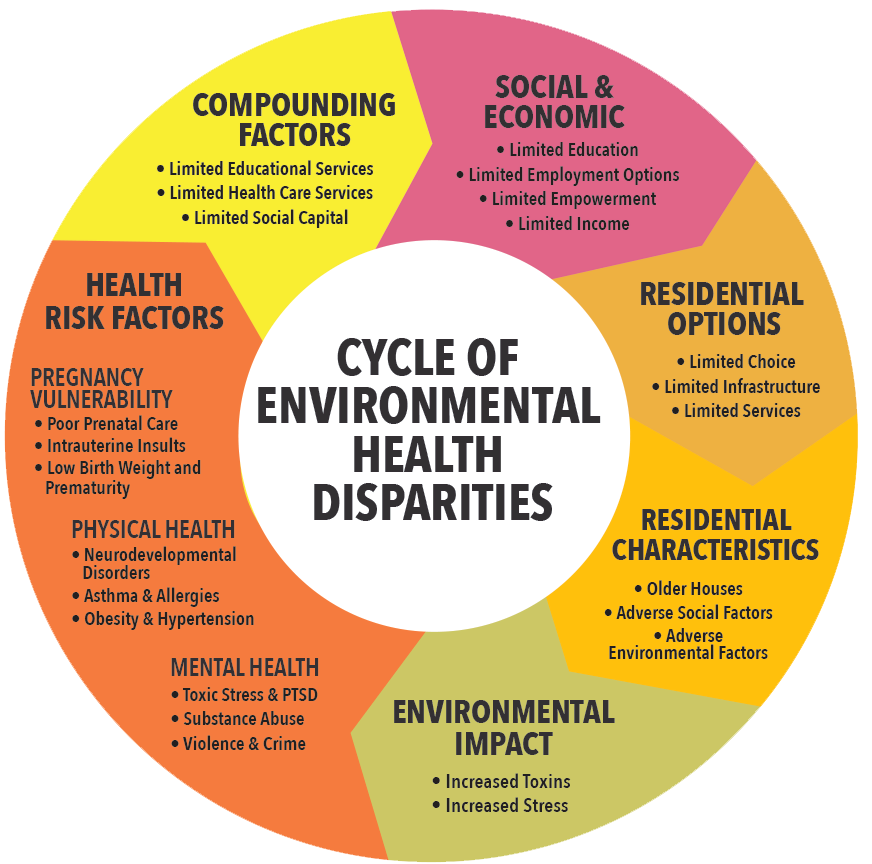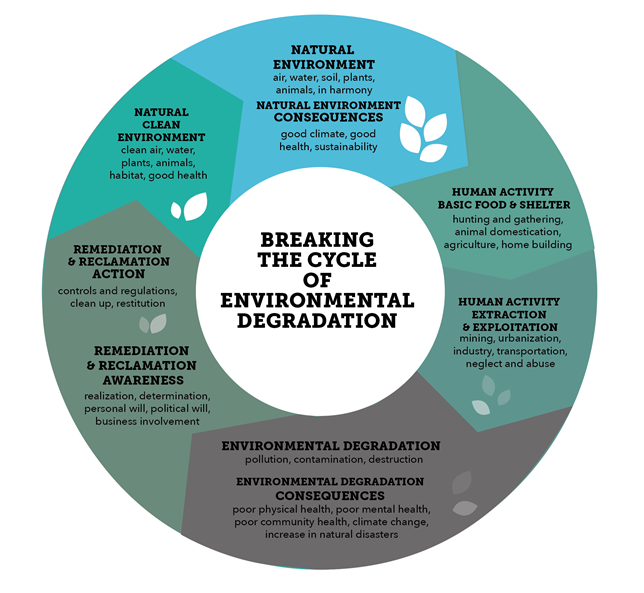Background
By Kira Joyner
The foundations of the Environmental Justice Movement rest on the belief that access to a clean and safe environment is a fundamental human right. All of Georgia’s communities feel the impact of climate change. Yet, communities of color and low-income households are disproportionately affected because these neighborhoods are more likely to experience increased pollution levels, floods, and high energy expenses.
Many environmental injustices in Georgia are caused by racial and economic differences, born of Georgia’s long history of segregation and the practice of redlining. Redlining was advocated for in the 1930s by the Federal Housing Administration and the Home Owners Loan Corporation, which declared minority districts to be risky places to invest and thus refused bank loans, mortgages, and insurance in these areas. Government housing discrimination lowered home values, reduced job possibilities, and encouraged poverty in these neighborhoods.
Consequently, infrastructure in redlined neighborhoods suffered and city planners targeted these areas for industrial development. These spaces were used as disposal grounds for toxic garbage produced elsewhere, including coal ash, mine tailings, and asphalt shingles. Researchers examined air quality data from more than 200 cities and discovered a consistently poorer air quality in the historically redlined areas. Specifically, there was a higher level of airborne particulates. These pollutants irritate the human airways, impair lung function, set off asthma attacks, and harm the heart, which leads to shortened life spans from an increased risk of stroke, cancer, and other chronic diseases. Pregnant women and children are especially susceptible to the effects of this kind of exposure. Increased exposure to environmental pollutants contributes to or worsens adverse health conditions in children, such as obesity, hypertension, diabetes, and atypical neurodevelopment.
While the citizens of historically redlined neighborhoods are often part of data groups whose results are used to garner grants and government programs, these citizens rarely receive the benefits. This, combined with limited educational and healthcare resources, contributes to intergenerational poverty and the persistence of health disparities in redlined neighborhoods, as described below in part of a Cycle of Environmental Health Disparities.


Heat as an Example of Compounding Environmental Effects
Environmental inequality places a heavy burden on affected individuals, including lost wages due to illness, increased health care costs, and, in extreme cases, the loss of life. These individual burdens also carry a high societal cost. The effects of rising global temperatures as a result of climate change illustrate this connection.
Heat is the deadliest weather-related hazard. In the overall population, there are increased hospitalizations and ER visits for heat-related illnesses; however, elderly persons, children, pregnant women, outdoor laborers, and those with chronic illnesses are especially vulnerable.
Urban heat islands, as these areas are known, are more likely to occur in historically redlined neighborhoods. An ongoing research effort in Atlanta, Urban Heat ATL, is tracking both the disparity and the cost. A 2025 study in Science Advances found that extreme heat may speed up the process of aging.

Environmental, social, and public health variables play a significant mediating role in the direct and indirect effects of climate change on health. There are various health concerns associated with climate change, its exposure mechanisms, and risk factors. From WHO. https://www.who.int/news-room/fact-sheets/detail/climate-change-and-health
For the US at large, 2022 was the 6th hottest year in US recorded history, and 2023 is on track to be even hotter. The organization Climate Central studied the increase in high heat index days (days that feel over 90 degrees F) since 1979 and the top six cities were all in the South. Savannah, GA has 25 more heat index days, and Atlanta, GA has 18.

Image from – https://www.climatecentral.org/climate-matters/heat-and-hospitalizations
Heat has adverse effects in rural areas as well. In rural areas, especially agricultural zones, crop yields are extremely vulnerable to climate change because agriculture is directly and highly dependent on the temperature and daily weather. The agriculture industry in Georgia generated $69.4 billion and 352,000 jobs in 2020. According to the Georgia Climate Project, climate change has, and will continue to cause, reduced farm productivity. Noticeably, in 2023, Georgia had no peach crop, in part, due to changing climate patterns. When Georgia farmers suffer, Georgia suffers due to increased food prices and decreased access to fresh fruits and vegetables.
Furthermore, when farmers cannot meet their production goals, their incomes suffer, causing ripple effects throughout their economy. For example, rural Georgians already have decreased access to health care. If their incomes decrease, they may postpone or forgo critical medical care, which may cause rural healthcare centers to close, making healthcare even costlier and harder to access.
The effect of rising temperatures on Georgians at the individual, city, and state level is but one example of the human and environmental cost of climate change, and how the effects are felt most acutely by historically marginalized individuals and groups.
Solutions
Addressing environmental injustices has been a part of official U.S. policy since the 1990s when the Clinton Administration began to examine the unfair effects of pollution on certain communities. Under the Biden Administration, the EPA set up an EJ Screening Tool that combines environmental quality data with socio-economic data. This tool was used to guide decisions on where to invest federal dollars.
In 2021 the Biden administration committed to providing underserved communities with 40% of the benefits of infrastructure and climate investment. Over the next five years, these initiatives would generate close to 110,000 new jobs in Georgia. Right now, Environmental Justice as a concept is under attack in the current political climate and many of these investments are in danger.
What Can You Do?
When faced with societal problems caused by years of unfair policy, it is easy to feel helpless. But there are things we can do to drive change:
Decide to break up with plastic – plastic pollution and waste often ends up in water supplies and the environment of underserved communities.
Participate in local heat projects like https://urbanheatatl.org/
Get involved with efforts around Environmental Justice Legislation for Georgia
Learn about this history of Environmental Justice in Georgia
https://scienceforgeorgia.org/knowledge-base1/a-history-of-environmental-justice-in-georgia/
Georgians are ready for environmental justice. Medical students are learning about the health effects of climate change, and medical researchers are supporting and directing studies that address the link between poor social and economic conditions, harmful environmental variables, and health. Local colleges are mapping Atlanta’s hottest neighborhoods and doing other research to develop a better understanding of the connection between social and economic adversity and the prevalence and seriousness of negative health consequences. Researchers, public services, and community organizations are promoting and creating initiatives and plans that would enhance children’s health in neighborhoods with precarious conditions.
Resources
https://www.savannahnow.com/story/opinion/2022/04/12/fight-climate-change-and-support-environmental-justice-georgia/7278238001/
https://www.washingtonpost.com/climate-environment/2022/03/09/redlining-pollution-environmental-justice/
https://sustainability.emory.edu/environmental-justice-july-blog-series-blog-3/
https://www.nytimes.com/interactive/2020/08/24/climate/racism-redlining-cities-global-warming.html
https://www.eealliance.org/about-env-justice.htmlhttps://pubs.acs.org/doi/epdf/10.1021/acs.estlett.1c01012
https://health.gov/healthypeople/objectives-and-data/browse-objectives/environmental-health
https://www.who.int/teams/environment-climate-change-and-health/air-quality-and-health/health-impacts
https://www.sciencedirect.com/science/article/abs/pii/S0048969718338543?via%3Dihub
https://www.breakthecycleprogram.org/
https://www.weather.gov/mkx/heatwaves
https://www.epa.gov/heatislands
https://news.un.org/en/story/2023/10/1141937
https://www.climatecentral.org/climate-matters/high-heat-index-days-2023
https://caed.uga.edu/content/dam/caes-subsite/caed/publications/ag-snapshots/2022CAEDAgSnapshotsWeb.pdf
https://www.gpb.org/news/2023/07/05/dire-situation-what-caused-georgias-catastrophic-peach-crop-failure
https://www.pcom.edu/about/departments/marketing-and-communications/digest-magazine/digest-featured-stories/health-care-in-rural-georgia.html
https://www.epa.gov/ejscreen

